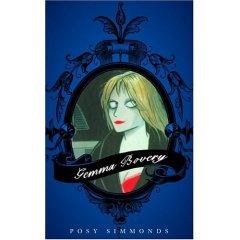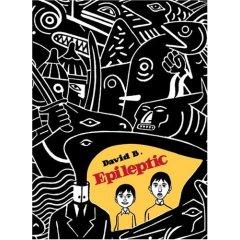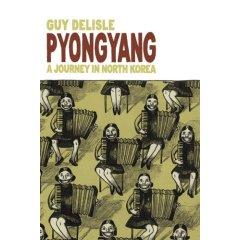Epileptic and Gemma Bovery.

My sister, who is eleven years older than I am, moved out of the house and onto college when I was seven years old. I moped around the house for days, convinced that she'd forget me. She didn't, though, and for the next 10 years always made a point of having my mother drop me off at whichever hippie bachelorette pad she was currently calling home in the Five Points area of Columbia, South Carolina. I loved staying with her, mostly because I missed her, but also because she saw no particular reason to curb her freewheeling hippie bachelorette lifestyle just because her eight year old sister was tagging along. When I was ten I was spending Sunday mornings in bars with my sunglasses-clad sister and the achy, hungover heads of all her friends, grimacing my way through my first screwdriver, or sitting in the back seat of a long white '65 Chevy Malibu, chauffeured around by a man with curly dark hair named Mo, an open bottle of Bud nestled snugly against his crotch. When I shyly gathered my courage to whisper something about drinking and driving, he howled with laughter, brushed his face up against mine in a stubbly kiss and shouted, "No worries, little baby, I put the M-O in "moderation!"
I was twelve when I learned to separate the stems and seeds from the buds, and fifteen when I learned that it was fine to suck back as many Marlboro Reds as you wanted as long as you were in a bar, because it didn't count as smoking if you were drunk.
For reasons my young brain could not fathom, she inexplicably drew the line when she walked into her bedroom and discovered me poring through her collection of Fabulous Furry Freak Brothers and Mr. Natural comic books.
"No!" she said, startling me into wide-eyed confusion as she snatched them away from me.
"But why?" I asked, following her around, hurt.
"They aren't for kids to read; they're for grownups," she snapped. "Now I'm going to pour myself a glass of cabernet. Do you want one? No? No, you probably wouldn't like it. Let's get you some Zinfandel, it's sweeter."
I dropped the subject for the moment, picking it back up again the following morning when she was heavily sleeping off the bottle of red. I slipped into her closet and sat on the hardwood floor for the better part of an hour, blissfully introducing myself to Phinneas, Franklin, Fat Freddy, and of course, their filthy cat. When I went to college myself, I bought the entire collection at H.R. Puff N Stuff, a head shop in Pennsylvania that had somehow managed to avoid a lawsuit from Sid and Marty Krofft. Ever since then, I've always loved alternative comics, even though I've never joined the boys flipping through Marvel or arguing the superiority of Batman over Superman.
I've been especially happy that graphic novels are gaining in acceptance, because it's allowed me to leave my dirty hippie homebase and branch out into reading Spiegelman, Satrapi, DiMassa, the great Bechdel, and of course, the ultimate in graphic novels, Gaiman's Sandman series.
Lately I've been getting into French graphic novelists, and, when that won't do, English graphic novelists who set their stories in France and write the dialogue partially in French. I know, I know, but these are really good.
Gemma Bovery, the faux French one written by British cartoonist Posy Simmonds and published by Pantheon Press (which has an excellent graphic novel section, by the way), was originally printed in weekly serial form in The Guardian. I can't say how it was like to read it in its original form, but Gemma Bovery reads so much like one of them there books without pictures that I feel like it's better to hold the entire story in your hands at once.
Gemma, unsuprisingly, is the modern re-telling of the Flaubert classic Emma Bovery written in comic book form. Simmonds has a lot of story to tell, and as a result, the characters in the illustrations creep around the copious dialogue, typeset instead of hand-lettered. Gemma, a dissatisfied and restless second wife to an emotionally distant husband whose heart is preoccupied mostly with his children from his first marriage. A reluctant stepmother and jealous of the demands made by her husband's first wife, Gemma demands a change of scenery in the northern French provence of Normandy, where she captures the imagination of an intellectual baker, who is the tale's narrator. Helpless in the face of his voyeurism, he watches her self-destructive behavior build to explosive proportions.
The black-and-white, stark illustrations lend well to the tragic tale, and have a decided Edward Gorey influence that lends well to the story that's being told.
The actual French graphic novel, David B.'s Epileptic, is an incredibly ambitious, exhausting, 361 page novel, in classic panel form. The epileptic in question is David's older brother Jean-Christophe, whose severe form of the disease rules not only Jean-Christophe, but his entire family. It is an aching novel, especially if, like me, you are the parent of a disabled child. The entire family revolves around Jean-Christophe's illness. Summers are spent at a macrobiotic camp because his parents met a Japanese guru whose strict dietary regimine seemed to lessen his thrice-daily grand mal seizures. When summer ended, the whole family stayed on, and David and his sister Florence were home-schooled. As Jean-Christophe grows older, with no real cure in sight, his parents grow more desperate and the cures grow wilder. David's father relies on Catholicism, while his mother delves into more secular forms of mysticism, and where the parents go, the children follow. David begins to see his brother's disease as an actual monster, killing the entire family and tearing it apart. The disease begins interferring with not only Jean-Christophe's academic and social life, but David's as well.
David B. captures so well the pain and heartbreak that come with a family's lifelong battle with a severe childhood illness, and the depression of well family members when they realize they must make the choice to either let go, or allow themselves to get sucked down the epileptic whirlpool along with Jean-Christophe.
Next on my To Buy list is Guy DeLisle's story of his visit to North Korea, Pyongyang, and I cannot wait. I cannot wait to buy this book. I think about it all the time.
In fact, I think about it so much that last night, when I was sitting at the kitchen table with Alex, coloring with him, I realized that I had absently written "Pyongyang" in blue crayon. Unable to satisfactorily explain why I was writing down the name of the capitol city in the last communist regime to an imaginary House Un-American Activities Committee, I eventually gave up, drew a red flag, signed my work "Commie Mommy" and called it a day.
Sunday, September 11, 2005
<< Home
